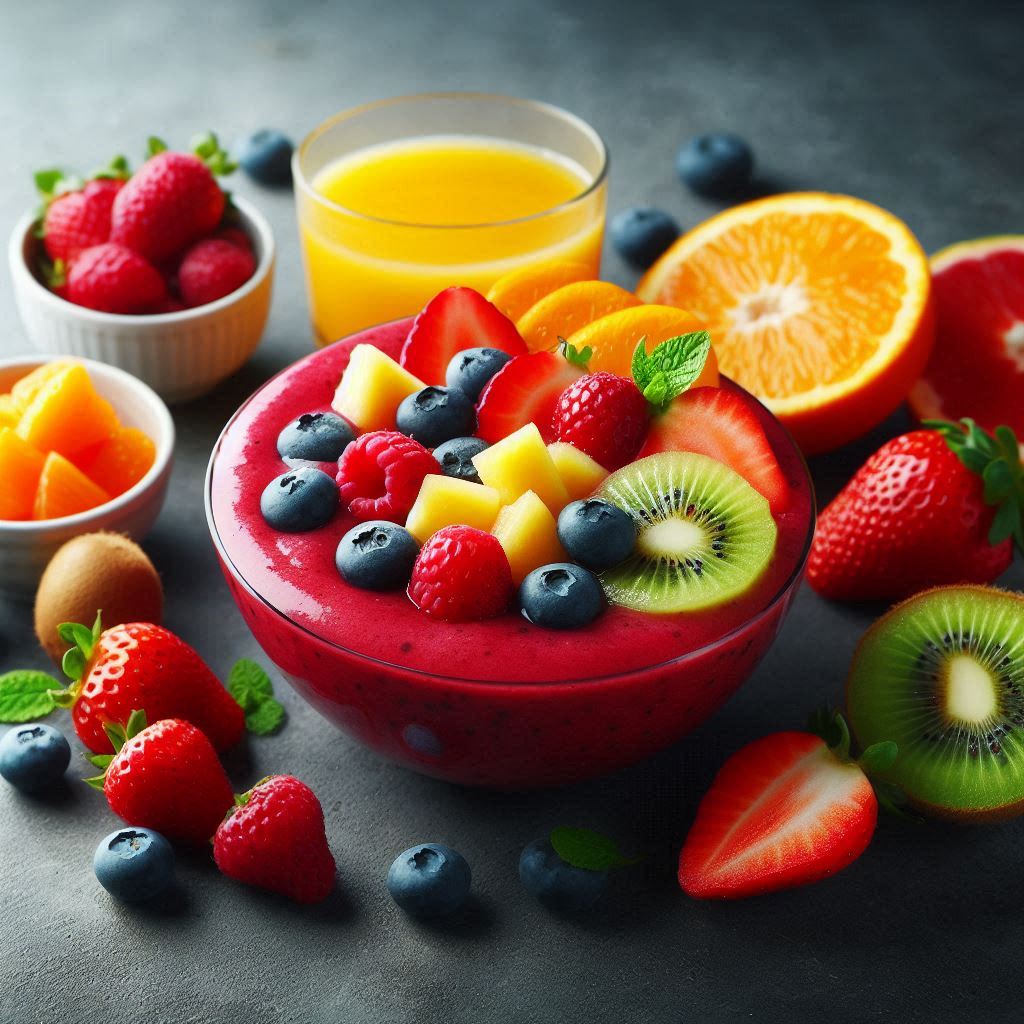
Puree vs. Concentrate
Key Differences Between Puree and Concentrate:
Puree and concentrate are two distinct products derived from fresh fruits, but their production processes, compositions, and applications differ significantly. Below are the key differences between these two products:
1. Production Process
- Puree: Puree is made from fresh fruits that are chopped and either cooked (or sometimes raw). The fruit is then strained or blended into a smooth, uniform texture, ensuring all the edible parts of the fruit (except the seeds and peel in some cases) are retained.
- Concentrate: Concentrate is derived from fruit juice, where a large portion of the water is evaporated to create a more concentrated and thickened product.
2. Consistency and Composition
- Puree: Puree retains all parts of the fruit (such as pulp, flesh, and juice), resulting in a consistency close to the original fruit. The water is not removed, and its texture is smooth and soft.
- Concentrate: Concentrate is thicker than puree since much of the water has been evaporated. This process intensifies the flavor and nutrients of the fruit or vegetable in a smaller quantity.
3. Water Content
- Puree: Puree contains a large amount of the fruit’s natural water since very little water is removed during processing.
- Concentrate: Most of the water in the concentrate is removed, resulting in a thick, dense liquid. To use the concentrate, water is typically added back.
4. Applications
- Puree: Purees are commonly used in the production of ready-to-eat foods such as baby food, sauces, soups, fruit-based desserts, and baked goods. Due to the preservation of the fruit’s natural texture, they are ideal for products that require authentic taste and consistency.
- Concentrate: Concentrates are primarily used in the production of fruit juices, mixed beverages, jams, and dairy products like fruit-flavored yogurts. They are favored in industrial manufacturing due to their longer shelf life and easier transport.
5. Flavor and Nutrients
- Puree: Puree retains more of the fruit or vegetable’s natural components, offering a more authentic and full flavor. Since it undergoes minimal processing, the nutrients are less affected.
- Concentrate: Concentrate offers a more intense and concentrated flavor due to water evaporation. However, some nutrients and vitamins may be lost during the process of evaporation.
6. Shelf Life
- Puree: Generally, purees have a shorter shelf life because they retain the fruit's natural water content, making them more prone to spoilage.
- Concentrate: Concentrates have a longer shelf life due to the removal of water, which reduces the risk of spoilage. They are easier to store and transport.
7. Transportation and Storage
- Puree: Transporting puree is heavier due to its higher water content and requires special storage conditions like refrigeration.
- Concentrate: Concentrates are more efficient to transport and store because the water has been removed, making the product lighter and more compact. Some concentrates can even be stored without refrigeration.
Conclusion:
- Puree: A smooth, uniform product that retains all the edible parts of the fruit. It is commonly used in food industries where maintaining the fruit’s natural texture and flavor is important.
- Concentrate: A thicker, more concentrated product created by removing much of the water. It is favored in the beverage industry and for producing products with intense flavor and longer shelf life.
Both products have their unique uses across various industries and are chosen based on the needs of manufacturers and the desired final product.


